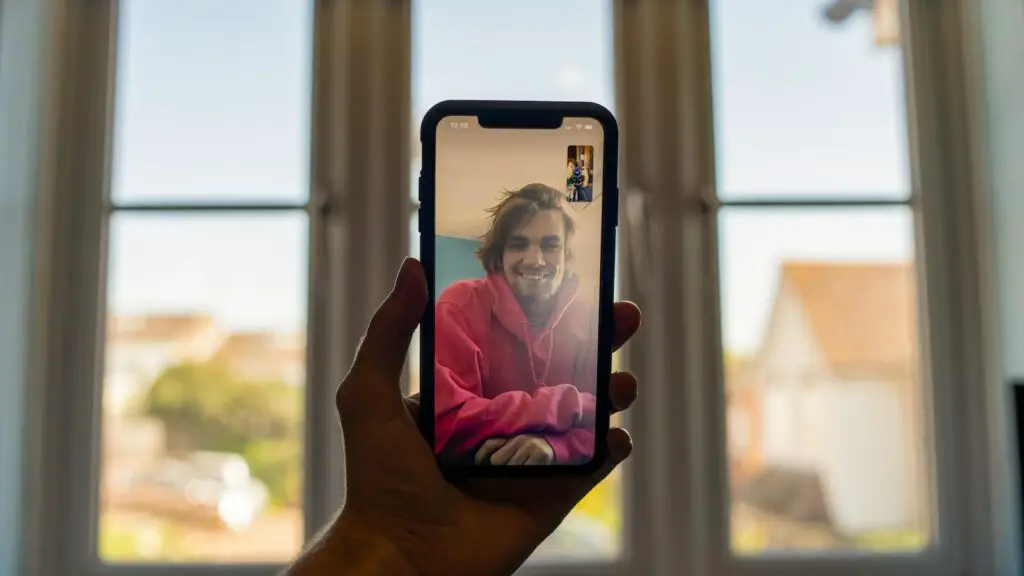FaceTime is the revolutionary communication app developed by Apple Inc. It has revolutionized the way people communicate with each other, allowing people to make video calls, audio calls, and text messages at no cost.
However, in some countries, including Dubai, FaceTime is banned due for certain reasons. In this article, we will discuss why FaceTime is banned in Dubai.
Why Is FaceTime Banned in Dubai?
The United Arab Emirates (UAE) is a country that is known for its strict rules and regulations. The country is composed of seven emirates, one of them being Dubai.
As per the UAE’s laws, using VoIP services such as FaceTime, Skype, WhatsApp, and Viber is illegal in the country. This decision was made to protect the local telecom companies from losing their market share due to the competition posed by the said services.
The UAE also has its own VoIP service, known as Etisalat and Du, which are the only approved VoIP services in the country. The telecom companies have an agreement with the UAE government that prevents them from providing the services of other VoIP services in the country.
This agreement with the government has been in place since 2006 and has been in effect ever since.
Reasons for Banning FaceTime
Here are the five major reasons for the banning of FaceTime in Dubai:
Security Risks
One of the biggest issues with FaceTime is the potential security risks associated with it. While the app is encrypted, there have been reports of hackers gaining access to users’ data, including personal information and credit card numbers.
FaceTime’s end-to-end encryption isn’t always secure, meaning that if one user’s device is compromised, the other user’s conversation can be intercepted.
Data Collection
Apple has been known to collect data from its users, and FaceTime is no exception. The company collects data about who users are talking to, how often, and for how long.
This information can then be used to target users with advertisements or sell to third parties. This data collection is a serious privacy concern, and banning FaceTime would help protect users’ data.
Lack of Parental Controls
Due to the lack of controls available in FaceTime, parents have little control over who their children are talking to. While it’s possible to block certain contacts, it’s not always possible to know who your child is talking to.
This can lead to dangerous situations, such as talking to strangers or being exposed to inappropriate content.
Lack of Moderation
Unlike many other video chatting apps, FaceTime does not have any moderation or monitoring features. This means that inappropriate or offensive content can be shared without any repercussions or action being taken.
Additionally, there is no way to report offensive behavior or block offensive users.
Unregulated Content
Lastly, FaceTime has no content regulations or restrictions. This means that anyone can share anything they want, regardless of whether or not it’s appropriate.
This can lead to the sharing of illegal or dangerous content and negatively impact users, particularly children.
Consequences of Using FaceTime in Dubai
The consequences of using FaceTime in Dubai can vary depending on the type of content shared over the app. For example, sharing any type of content that is deemed offensive or inappropriate could result in legal action, such as a fine or even imprisonment.
Additionally, there is a risk of cultural misunderstandings, as FaceTime is not widely used in Dubai. Finally, users should be aware of the security risks associated with using FaceTime, as the app is not as secure as other messaging services.
Legal Consequences
Using FaceTime in Dubai can result in legal consequences depending on the type of content shared over the app. Dubai has a strict set of laws and regulations that govern the use of social media, and any content that is deemed offensive or inappropriate could result in legal action.
For instance, sharing any type of pornographic material or content that is insulting to Islam or the UAE is illegal and could lead to a fine or even imprisonment. Additionally, any content deemed a threat to public order, or national security could also lead to legal action.
Cultural Implications
FaceTime is not as widely used in Dubai as it is in other countries. This can lead to potential cultural misunderstandings, as the app is not familiar to many people in the region.
For instance, some people may be uncomfortable with video calls as they may not be used to such a direct form of communication. Additionally, some people may be unfamiliar with the features and functions of FaceTime, leading to confusion and potential miscommunication.
Security Concerns
Using FaceTime in Dubai also carries certain security risks. The app is not as secure as other messaging services, as it does not use end-to-end encryption.
This means that any information shared over the app is not protected from being intercepted by third parties. FaceTime does not have the same security measures as other apps, such as two-factor authentication, making it more vulnerable to hackers.
What Are Other Video Calling Options Available in Dubai?
Despite the ban on FaceTime, many video calling options are still available in Dubai. Here are the five other video-calling options you can go for in Dubai:
Skype
One of the most popular video calling options in Dubai is Skype. Skype is a free app that allows users to video call anyone in the world. It is available for both mobile and desktop devices.
The app allows users to make free video calls from their computers and mobile phones to anyone in the world with a Skype account. It also allows users to make international calls at low rates.
Skype also offers features such as screen sharing, file sharing, and instant messaging.
WhatsApp is another popular video-calling app in Dubai. It is a free messaging and calling app available for mobile and desktop devices.
WhatsApp allows users to make free calls to anyone in the world with a WhatsApp account. It also allows users to make international calls at low rates. Additionally, WhatsApp offers features such as group calls, voice messages, and video messages.
Google Hangouts
Google Hangouts is another great video-calling app in Dubai. It is a free app available for mobile and desktop devices. Google Hangouts allows users to make free video calls from their computers and mobile phones to anyone in the world with a Google account.
It also allows users to make international calls at low rates. Google Hangouts also offers features such as group video calls, text messages, and instant messaging.
Viber
Viber is another popular video-calling app in Dubai. It is a free app available for mobile and desktop devices.
Viber allows users to make free video calls to anyone in the world with a Viber account. It also allows users to make international calls at low rates. Viber also offers features such as group video calls, voice messages, and video messages.
Zoom
Zoom is another great video-calling app in Dubai. It is a free app available for mobile and desktop devices.
Zoom allows users to make free video calls from their computers and mobile phones to anyone in the world with a Zoom account. It also allows users to make international calls at low rates. Additionally, Zoom offers features such as group video calls, screen sharing, and file sharing.
Conclusion
The ban on FaceTime in Dubai is due to the strict laws and regulations of the UAE. The government of the UAE has imposed a ban on the use of VoIP services such as FaceTime, Skype, WhatsApp, and Viber in order to protect the investments of local telecom companies.
The government has also imposed restrictions on downloading certain apps, accessing certain websites, and using certain social media sites. Anyone caught using FaceTime in Dubai will face hefty fines and other legal consequences.
People May Ask
Q1. Is FaceTime banned in Dubai?
A1. Yes, FaceTime has been banned in Dubai since the beginning of 2019 by the Telecommunications Regulatory Authority (TRA).
Q2. Is it illegal to use FaceTime in Dubai?
A2. Yes, it is illegal to use FaceTime in Dubai as it does not have a license from the TRA.
Q3. How can I use FaceTime in Dubai?
A3. The only way to use FaceTime in Dubai is to connect to a Virtual Private Network (VPN). However, using a VPN to access services like FaceTime in Dubai is illegal and can lead to serious consequences.
Q4. What are the alternatives to FaceTime in Dubai?
A4. The two apps that the TRA officially licenses are Botim and C’Me. Other alternatives include Skype, Zoom, Whatsapp, and Viber.
Q5. Are there any other VoIP services available in Dubai?
A5. Yes, there are other VoIP services available in Dubai. The TRA has licensed two VoIP services, Botim and C’Me, in the UAE, and they are the only two services allowed to be used in the country.










